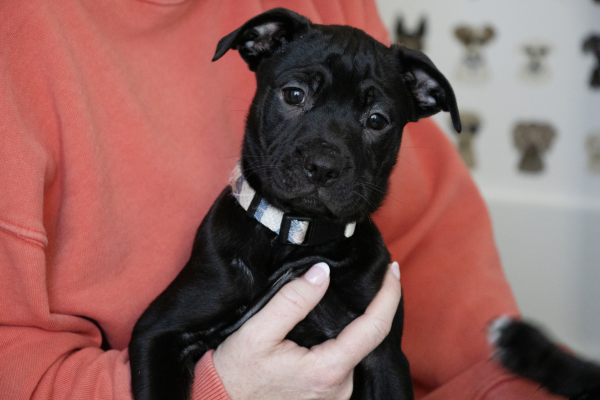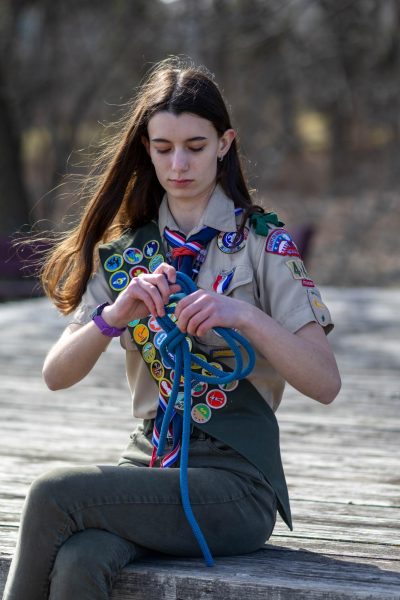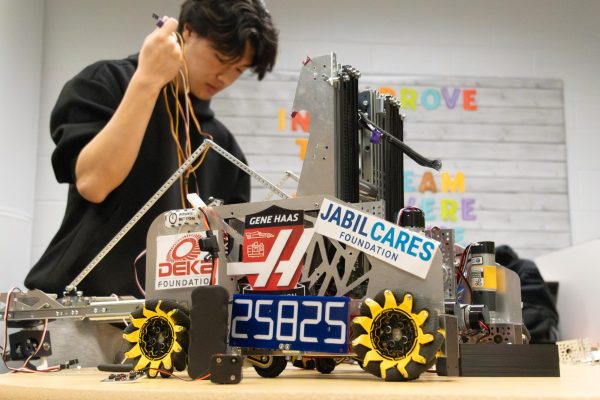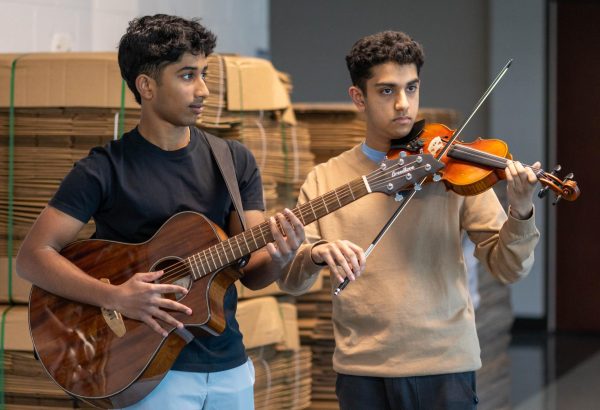Legacy of a loved one
Students and parents share how the loss of a loved one shifted their lives.
The Reaction
After the first varsity football game of the 2021 season, senior Caroline Mall’s mom, Jacque Reynolds, shared news that drastically changed her family’s life.
“Hannah is dead,” Mall remembers her mom saying.
In September of 2021, Mall’s older stepsister, Hannah King, was allegedly shot by her boyfriend, Connor O’Mara, in Topeka. According to Reynolds, King was allegedly in a domestically violent relationship.
When Reynolds delivered the news to Mall, she said she approached her daughter in a concise way.
“I tried to be emotionless so she could have her emotions and feel them. I didn’t want to take any of that [emotion] away from her,” Reynolds said.
Mall explained she did not initially believe what her mom was saying.
“I literally just looked my mom and dad in the eyes and I said, ‘Are you joking? You have to be. You’re lying to me,’” Mall said.
Senior Lexi Liess also understands the shock of losing an immediate family member.
“She was here for a while, and now she’s just not,” Liess said.
Liess’s mother, Linda Liess, died when Lexi was eight years old, after fighting colorectal cancer for four years. Liess said because she was so young when it happened, she reacted the way a normal eight-year-old would. She explained how if she lost her mom now, her reaction would be different because she is older and more mature.
“[I was] in the brain of an eight year-old. I was still thinking about what an eight-year-old is thinking of, just themselves: their friends and stuff,” Liess said.
Liess said her mom’s death initially took her by surprise as she never thought her mom would actually die.
“I knew she had cancer, but I honestly thought she was gonna live through it,” Liess said.
In light of her naive reaction, Liess said she wishes she could change the last goodbye she exchanged with her mom before she died.
“I think [if I had known] at that moment that she was going to die, [I would’ve] had a better goodbye,” Liess said. “I was leaving the hospital, and I was like, ‘Oh, bye,’ because I didn’t know what was going to happen.”
Senior Audrey Malis also experienced the loss of a parent when she was young. Her father, Michael Malis, died by suicide after struggling with bipolar disorder when Audrey was four years old.
Malis said because she was so young, she has never known what it is like to have a father-figure, and she wonders if her life would be different if she had that male-influence.
The Fallout
In order to cope with the loss, Malis turned to therapy, sports and friends for help. She said her mom, who declined to be interviewed for this story, started her in therapy shortly following her father’s death to prevent the effects of bipolar disorder.
“I think it was helpful. If I was experiencing the same thing that he went through, we [would] want to know and take care of it and get help,” Malis said.
As a part of her coping with her stepsister’s murder, Mall said it has been important to continue living normally.
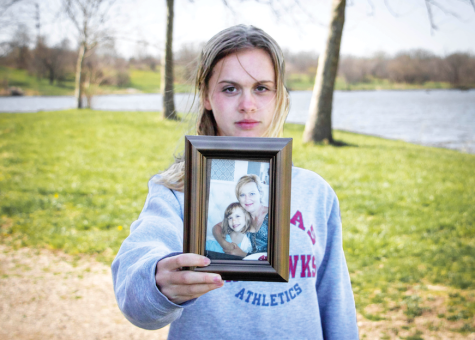
“Especially the first month after she died, not slipping from your routine [is important] because that is how depression can start,” Mall said.
During her grieving process, Liess said she turned to her dad to cope with the situation, as he was going through the same experience and could understand her feelings. She believes being an only child influenced their relationship.
“From a young age, I’ve always been super close with my dad. For a while he did have to take on the mom role,” Liess said. “I think that kind of forced us to be close and we couldn’t really break that relationship.”
Rich Liess, Lexi’s dad, explained his approach when trying to relate to his daughter during this time.
“It’s such a major, life-changing event, and it really does just turn your life upside down. You really have to be patient and mindful of what’s going on in your kid’s mind,” Rich said.
One of the biggest adjustments for Liess was when her dad started dating again. Though she said she never resented him, she did resent the situation.
Liess believes seeing her father date again was so difficult because that is when she started reacting to her mother’s death.
“[My mom] died in January [of 2013], and he started dating again in July, so it wasn’t much time that passed,” Liess said. “I just got really defensive. That was probably the hardest part.”
Similar to Liess, Malis had to watch her mom date. She said it was hard to see her mom get hurt throughout the years, but Malis said her mom has now found a good boyfriend, who Malis believes could potentially have a father-like role in her life.
“Well, they started dating only a couple years ago. But I could see [him as a father-figure], because he is honestly a really great guy and has two kids, so he kind of already knows the role,” Malis said.
Contrary to Malis, Liess said although she and her stepmother, Georgina Green, get along, she will never truly replace her mom.
“I only refer to her as ‘Georgina’, and she’s a stepmother figure, but [she] will never [be] a mother figure,” Liess said.
Although Mall said she did not have the best relationship with her stepsister at the time of her death, she is saddened about not being able to further build their relationship.
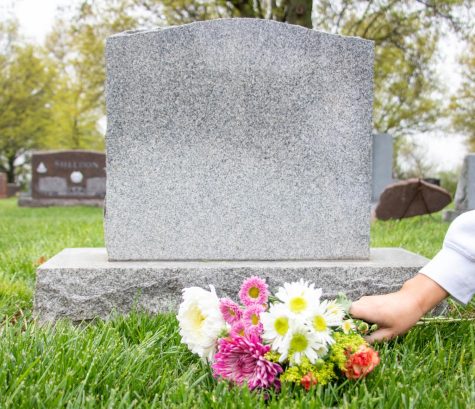
“At the time [of her passing], we were not as close as we used to be, and we were starting to rebuild our relationship, but obviously, I am not able to do that anymore,” Mall said.
Aside from not having King’s presence anymore, Mall said she found it was hardest to deal with the fact she died from something Mall deems preventable.
“It’s not necessarily that she’s not here. It’s the fact that she died from something that could easily not have happened,” Mall said. “I could have taken this loss a lot easier if she had died from something that wasn’t preventable.”
The Influence
Mall said she looked up to her stepsister and now tries to exhibit certain influential characteristics her stepsister had.
“She was so flawlessly herself. Throughout every situation, she didn’t care about other people’s opinions,” Mall said. “So, I try to carry that with me through my life.”
Mall said her stepsister’s big personality left a big impact on her family, which forced them to adjust their dynamic.
“She was able to smooth things out when stuff was going wrong. So, we had to reconfigure our family’s balance,” Mall said.
One result of King’s death was her family realizing they have to start spending more time with each other and live authentically.
“[We have] realized tomorrow isn’t promised, [and] all that cliché stuff that is very true. So [we have] kind of jump-started [our] lives to be more on track, be happier or more content,” Mall said.
Looking back, Liess said she admires the strength her mom held and will always remember her as tough, especially through her battle with cancer. She watched her mom go through multiple surgeries and Liess said it taught her to never give up.
“I want to make her proud, so sometimes if I want to get through a tough situation, I try to be like, ‘Oh, my mom went through [cancer], so I can do this,’” Liess said.
The Remembrance
Liess shared some of her lasting memories of her mom, including going to Deanna Rose Children’s Farmstead or walking on the trails behind her house. She said her mom actively made time for her, even while she was battling cancer.
“Even though she felt awful a lot and was going through sickness, she still made time to hang out with me, talk to me and be a good mother figure,” Liess said.
In remembrance of her mom, Liess said her family devoted a memorial bench. The bench is located in Gardner, Kan., where Liess used to live.
Liess is also the Senior Food Committee Chair Member for Relay for Life, an organization dedicated to raising money for the American Cancer Society. Liess said it was important she became involved with the foundation to honor her mom.
Similarly, Malis’s dad has a tree and bench dedicated to him at the Overland Park Arboretum, as Malis said he loved to visit there and be among nature.
One of the most significant ways Mall said her family remembers her stepsister is through celebrating Día de los Muertos, known as Day of the Dead. Día de los Muertos is a Mexican holiday celebrated on November 1 and 2. During these days, Mall said her family invites back the spirit of her deceased stepsister for a reunion. This holiday is important to Mall because it allows her to remember and celebrate King’s life.
“Especially since Hannah died so young, I think [my family] needs a way to hold on to her at least a little bit,” Mall said.
If her stepsister were here today, Mall said she would want King to know she has learned from King’s experience.
“I would tell her I’m gonna do well and not to worry about me if I [were] to ever fall in [an abusive] situation. I would reach out for help,” Mall said.
If given the chance to see her dad again, Malis said she does not know what she would tell him, but would want to help her dad anyway she could.
“I just would want to be there for him because I know he was going through a rough time,” Malis said.
Malis explained the most important thing when going through a difficult time is to talk to people, even if they do not believe they need it.
“My dad, he was a really smart guy and he didn’t think he needed to talk to anyone because he was a doctor and he thought he could take care of himself,” Malis said. “But no matter who you are, you need help if you’re going through something.”
When reminiscing about her mom, Liess said she felt like her mom knew she loved her and is always with Liess. Though Liess believes she will one day reconnect with her mom, she has occasional doubts.
“I don’t know when I am going to see her again, whether heaven is real or not, you never know. I mean, I think it is real, but there are thoughts of uncertainty,” Liess said.
The Takeaway
To advise those who are helping a friend in this situation, Liess explains it is hard for people to understand unless they have gone through the situation themselves. She said it is most beneficial when friends are there to listen, not try to relate to her.
“I think a friend reaching out is always nice, but don’t act like you know what’s going on. Just be like, ‘Hey, I’m here for you,’” Liess said.
Likewise, BVNW social worker Anyssa Wells explained how grief is unique to each individual and it looks a lot different for everyone.
“My approach is to let the individual kind of take the lead, share what they feel comfortable with, and just ask them what they need and how they want to be supported,” Wells said.
Though it has been nine years since Linda died, Rich said he and Lexi continue to experience the impact of her mom’s passing.
“We’re still going to experience the blowback from [her mom’s death]. High school graduation, wedding day, milestones down the road where it would be really nice to have your mom there, and Lexi’s not going to have that,” Rich said.
Adding to this, Liess believes the most common misconception of dealing with a death is being able to move on.
“I think the biggest thing is you’re supposed to move on from what happened, but in reality, you’re never really going to move on,” Liess said.
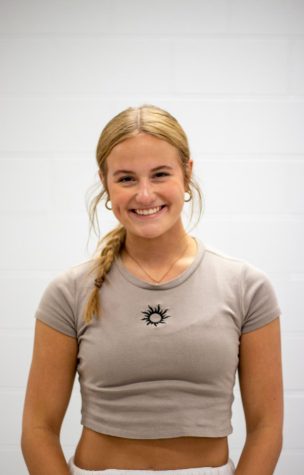
Julia Moser is a senior and the Editor-in-Chief of “The Express” and BVNWnews. This is her third year on staff, previously serving as Managing Editor. Julia is a member of the BVNW varsity cheerleading squad, in addition to being involved in NHS and Quill & Scroll. Outside of room 902, she enjoys spending time with her friends and family as well as binging her favorite shows, including “Stranger Things” and “Friends.” Julia is eager to serve as EIC and is hopeful for her staff’s sucess this year. She can not wait to see what this year holds and is excited to grow as a leader.
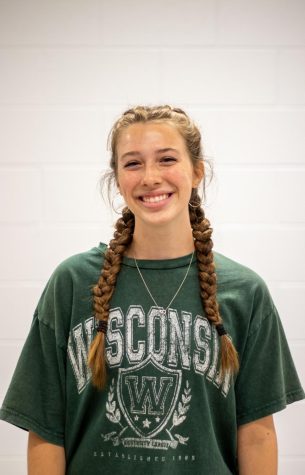
Lucy Halverson is a senior and the Editor-in-Chief of “The Express.” She previously served as a staff writer and as Editor-At-Large. Additionally, she is a part of NHS and KAY Club. In her free time, Lucy enjoys hanging out with her friends and working on personal goals, some of which include learning a new language, boxing and cooking. Lucy is elated to serve as EIC, and hopes to build great friendships with her fellow staff members and continue to provide hard-hitting journalism for the Northwest community.
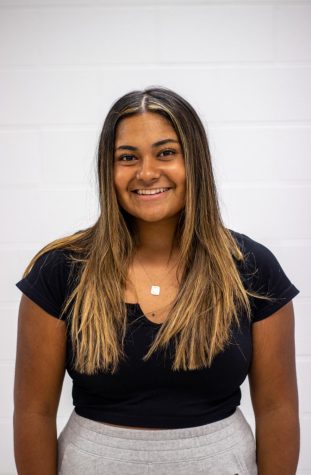
Norah Alasmar is a senior and the Online Photo Editor for “The Express.” This is her second year on staff. Outside of newspaper, Norah is involved in girls golf, NHS, SNHS and KAY Club. In her free time, she enjoys spending time with her friends and family, and watching her favorite shows and movies. Norah is excited to take on this role, and hopes to improve the photos distributed to our readers.


